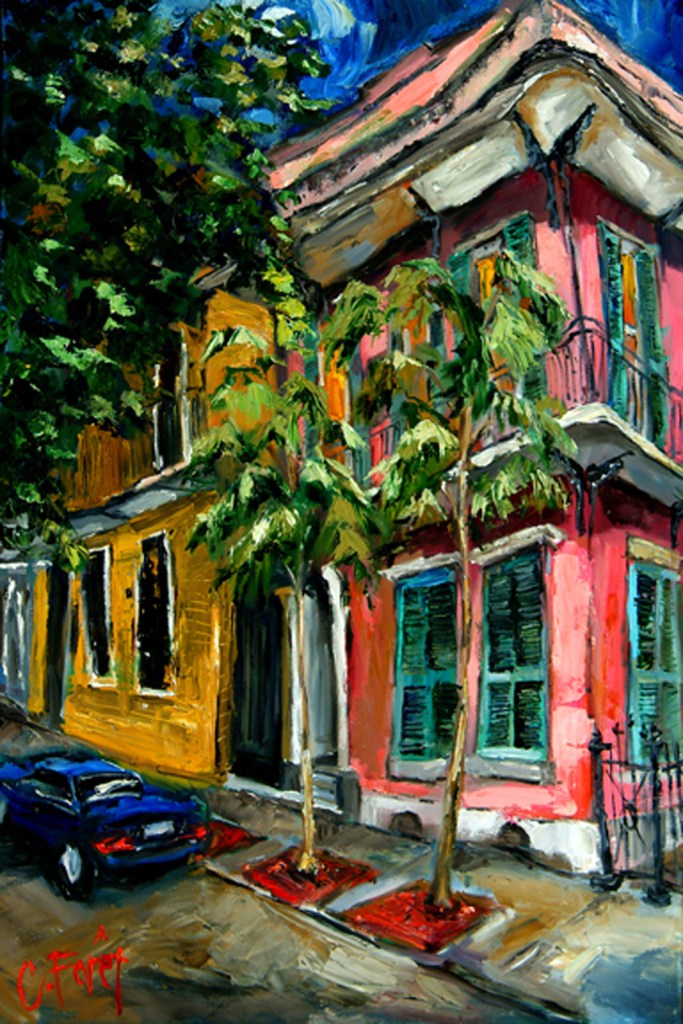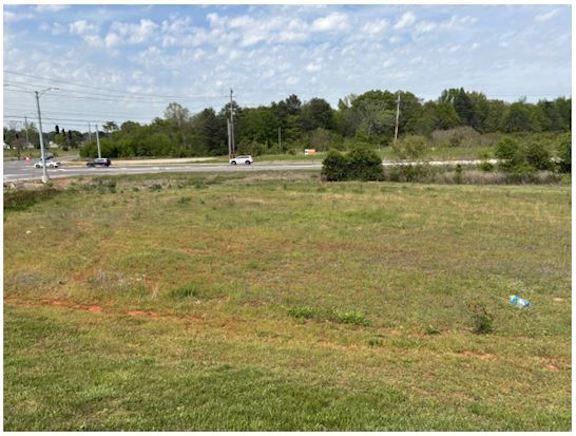Willie Part IV – Novella Serial
Published 9:12 am Monday, August 25, 2008

- images_sizedimage_238101226
The story of a woman who crosses social and racial lines in 1920 New Orleans.
Editor’s note: This is the fourth installment of a five-part serialization of a novella by local Bill Hunt, “Willie.” This week’s installment is illustrated by the author’s daughter, Carole Foret. Read installments one through three online at www.enewscourier.com
What has gone before…
John Abbott’s pregnant wife is unable to manage a household and a small child. Abbott crosses New Orleans to visit the tenant of one of his rental houses, Willie London, a widowed domestic servant, to ask her to come work in his home. He notices a marked change in her demeanor. She has grown cultured since last he saw her when her husband, George London, died two years before.
The story continues…
Everything had changed in the little white house on Louisa Street except the small kitchen table, where in its center, two red roses stood in a small red vase.
“Yeah, Willie, Donald’s getting to be a big boy, he sure is, and not only that, we’re going to have a new baby in about six weeks. Can you believe it? I bet George couldn’t,” and I stopped as a sudden change came over her expression. “I’m sorry, Willie. I’m sure you miss George a lot, and I’m sorry to have brought up his name. Forgive me, please.”
“Oh, Mister Abbott, that’s okay,” she said, glancing downward and speaking slowly. “Everybody thinks the same as you about George. He was a good man. He was good to me, anyway, and to everybody else. But nobody knows what the full story is, and it doesn’t really matter anymore.”
She patted my arm above the wrist, as if to console me, when it was she who should be consoled. “Y’all want a girl this time, I bet. Mrs. Margaret needs a girl to even things out.” A tear glistened in the corner of her eye.
“Yes, we do want a girl, but Willie, what do you mean by the ‘full story?’ What do you mean? What are you talking about?”
“Well, Mister Abbott, it’s a long story and one I’ve never told anyone.” Willie motioned me to sit in the place I always sat. “I’ve been waiting a long time to tell the right person. Really, I’ve needed to tell someone so I can forgive completely, maybe even forget. And Mister Abbott, you might be the person. Maybe you’ve always been the right person, and right now, well, I’m happy you came to see me today.”
She brushed a white handkerchief across her forehead and she licked her lips. “You’re the first person to hear this, and I sure hope you can understand. You know, Mister Abbott?” she said, leaning toward me, “There aren’t many white folks who can put themselves in a colored man’s place, and especially the place of a colored woman all alone, with no one.”
I nodded, and having lived all of my fifty-three years in New Orleans, I had never lived, as Willie put it, “in a colored man’s place.”
“When I was born, my mama birthed me early one morning on the edge of a cotton patch up north of here about a hundred miles, right on top of two sacks of cotton she and my daddy had just picked. The boss man on the plantation would’ve let Mama take some time off, but Mama and Daddy needed money so bad, that the next morning my mama went right out in the cotton field again and started picking with my daddy beside her, and with me tied to the bottom of her cotton sack.
“They always thought, and they waited a long, long time, that they would get forty acres of land and a mule, but that never happened. It never came, so they stayed tied to the plantation, and the cotton and cane fields. Me and my little brother and two older sisters grew up there with Mama and Daddy and worked in the fields along side of ’um, and every year when all the cotton was in, they moved to the sugar cane fields.”
Tears welled in Willie’s eyes, moved down her cheeks and fell onto her white uniform. She impatiently brushed the spots and continued her story.
“On rainy days or cold days when there was little work in the fields Daddy would let us go to school in town, but we had to walk almost two miles one way to get there. All of us loved school, and went as often as we could, but one day my older sisters disappeared, just left, ran away or something, and Mama and Daddy never talked about them anymore. Oh, every now and then, Mama would cry a little, but she always got on to something else anytime their names were mentioned.”
I felt badly that I had never asked Willie about her life, about her family or her background, assuming that she had probably been born and reared, like George, in New Orleans.
“Then one day, in the middle of May, it was too wet in the fields to chop cotton, so Daddy let me go to school in town. When I came home, there was a man sittin’ with Mama and Daddy on the front porch,” she paused, staring pointedly into my eyes. “He was a great deal darker than me, tall and slim, and he even talked different than the way we did. I thought that was funny, the way he said certain words, but after a few minutes, I went in the house and Mama followed me, telling me to come back out and meet the man Daddy was talking to.
“She told me that I was gonna go off with him, so I could go to school and study to be a nurse. That’s what I always wanted to be, a nurse to take care of babies. That’s what Mama and me talked about, both of us bein’ nurses, but poor Mama couldn’t even sign her name. Right then, I was almost finished the sixth grade.”
Willie stood and offered me some water. I nodded and she filled two glasses from the single faucet.
“You sure you wanna hear all this, Mister Abbott?”
“I do. I sure do, Willie. “I want to hear all of it.” I took a sip of water.
“Well, after dark came, Mama and I packed all of my clothes in two pillowcases for me to take. She told me I was goin’ far off, but she didn’t know exactly where, so the man was going to tell me when he made it to town. Mister Abbott, all I could think about was leaving my mama, my daddy and brother, and about school. That was the main thing I thought about—school.
“When we got to the depot in town and I saw that big train, I was really scared and started to cry,” she said, taking a swallow of water. “The man hugged me and told me everything was gonna be okay, and we would be to New Orleans in about six or seven hours. That’s when I really started crying, because I knew New Orleans was a long way from home and my mama and daddy weren’t ever gonna go to New Orleans to see me.
“But the man held my hand, and we got on the train. It was mostly white folks on the car, so we went all the way to the back and sat by ourselves. In just a little while a big puff of steam passed right by me, and the racket got awful, but we were on our way to New Orleans. I dried my eyes on the corner of one of my pillowcases, and the man hugged me again, then he pulled me close to him. He was kind to me, and gentle, and put his hand on the side of my head and held it there while I cried some more.”
Willie stopped, eyes brimming, and looked straight into my eyes. “Mister Abbott, the man held my head tight against his chest and whispered to me, ‘Willie, baby, my name’s George, George London.”





